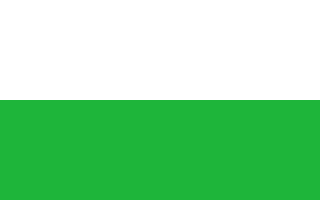
Politics of Burundi takes place in a framework of a transitional presidential representative democratic republic, whereby the President of Burundi is both head of state and head of government, and of a multi-party system. Executive power is exercised by the government. Legislative power is vested in both the government and the two chambers of parliament, the Senate and the National Assembly.

The Front for Democracy in Burundi is a Hutu progressive political party in Burundi.

Cankuzo Province is one of the 18 provinces of Burundi. Located in the eastern part of the country, the province covers an area of 1,965 km². The provincial capital is Cankuzo.

Parliamentary elections were held in Burundi on 29 June 1993. They were the first multi-party parliamentary elections since 1965, and followed the approval of a new constitution in a referendum in 1992. The result was a victory for the Front for Democracy in Burundi, which won 65 of the 81 seats.

The National Assembly is the lower chamber of Parliament in Burundi. It consists of 100 directly elected members and between 18 and 21 co-opted members who serve five-year terms.

The Senate is the upper chamber of Parliament in Burundi. It consists of no fewer than 37 and no more than 54 members who serve 5-year terms. The current Senate was elected on 24 July 2015 and consists of 43 members.

The position of Vice-President of the Republic of Burundi was created in June 1998, when a transitional constitution went into effect. It replaced the post of Prime Minister.

The Party for National Recovery is a minor political party in Burundi. It was founded in May 1994 by the former president Jean-Baptiste Bagaza. Bagaza, an ethnic Tutsi, had established a military dictatorship in Burundi from 1976 until his deposition in 1987, after which he lived in exile. He was allowed to return to the country during its democratization under Pierre Buyoya after 1992.

In 2007 the Government of Burundi consisted of a 20-member Council of Ministers appointed by the President. The Council of Ministers, together with the President and Vice-Presidents, forms the executive branch of government in the country.

The Parliamentary Monarchist Party (PMP) is a small royalist party in Burundi which seeks the restoration of the monarchy, deposed in a coup in 1966. It was founded by Guillaume Ruzoviyo in August 2001. The party has no elected representatives in parliament and Guillaume Ruzoviyono has not held a government post since the end of 2005, but the PMP rallied in a coalition of 10 parties at the 2010 general elections, and obtained the management of the Burundi Embassy in Russia. PMP is member of International Monarchist Conference.

General elections were held in Luxembourg on 12 June 1994, alongside European Parliament elections. The Christian Social People's Party remained the largest party, winning 21 of the 60 seats in the Chamber of Deputies. It continued the coalition government with the Luxembourg Socialist Workers' Party.

Parliamentary elections were held in Burundi on 4 July 2005. The result was a victory for the National Council for the Defense of Democracy – Forces for the Defense of Democracy (CNDD–FDD), which won 64 of the 118 seats in the National Assembly
The 2005 Luxembourgian communal elections were held on 9 October 2005. Elections are held every six years across all of Luxembourg's then-118 communes.

Parliamentary elections were held in Burundi on 23 July 2010. The opposition parties boycotted the election after also boycotting the presidential election.
The 2011 Luxembourgian communal elections were held on 9 October 2011. Elections are held every six years across all of Luxembourg's communes.

Parliamentary elections were held in Burundi on 29 June 2015. The vote had been initially set for 5 June 2015, alongside local elections, but it was delayed due to unrest. Indirect elections to the Senate occurred on 24 July.

Communal elections were held in Cambodia on Sunday, 4 June 2017. The National Election Committee (NEC) announced that some 7.8 million of 9.6 million eligible Cambodians were registered to cast their ballots. 94,595 candidates from 12 political parties contested the 11,572 commune council seats in 1,646 communes of Cambodia. Voter turnout was a record 90.37%. There were concerns surrounding some irregularities in the polling.









